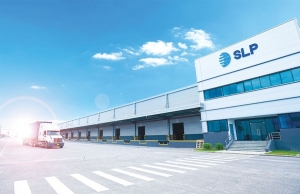Vietnam envisages GMT application by early 2024
 |
| Dang Ngoc Minh |
GMT is not an international treaty that all countries must obey. How do you perceive its importance to Vietnam?
In principle, GMT is not an international commitment, so it is not mandatory for countries to apply it.
However, if Vietnam does not move forward with it, it must still accept that other countries, especially those with large investments in Vietnam such as Singapore, Japan, and South Korea, will expedite the tax scheme from the outset of 2024.
Accordingly, these countries will have the right to collect additional taxes from businesses investing in Vietnam that are enjoying a corporate income tax (CIT) rate lower than the 15 per cent benchmark. As a recipient of foreign capital investment, Vietnam will be immediately affected by GMT.
How would the GMT scheme affect Vietnam’s current business landscape?
GMT is simply an additional CIT levied on multinationals with annual consolidated revenues from €750 million (nearly $800 million) who are required to pay actual CIT of less than 15 per cent in other countries – the nations where their parent companies are based will be able to collect the difference between actually paid CIT amounts and those calculated at the GMT rate of 15 per cent.
Vietnam's current general CIT rate is 20 per cent, which is clearly higher than the GMT rate, but like many other investment recipients, it offers numerous preferential policies for foreign investors, including CIT incentives.
| Applying minimum tax also contributes to fostering international integration and promoting tax system reform in accordance with international practices and standards. |
Vietnam's preferential CIT policies pertain to various investment fields, locations, labour use scales, and more, so many multinationals are entitled to a four-year tax exemption and a 50 per cent tax reduction for nine years, or a two-year tax exemption and 50 per cent tax reduction for four years, so the total amount of their paid tax is less than 15 per cent.
If Vietnam does not collect it, this tax value difference will fall into the hands of the countries where the parent companies are based.
Our country’s viewpoint is to put national interests first and foremost, so Vietnam is preparing to participate in the GMT scheme.
Applying minimum tax also contributes to fostering international integration and promoting tax system reform in accordance with international practices and standards, helping to minimise tax avoidance and the shifting of profits to countries with lower CIT rates, which leads to a loss for the state budget.
Tax incentives are one of the perks drawing foreign capital flows to Vietnam. When these are reduced, will this mean Vietnam becomes less attractive to foreign investors?
When GMT is applied, multinationals will recalculate their investment strategies based on the benefits they gain when deciding where to invest. Vietnam certainly never wants to lose favour with foreign investors when applying GMT, so we have worked with major investors, such as Apple and Samsung.
The leaders of these multinationals believe that when GMT comes into force, the Vietnamese government will support firms with other policies and mechanisms.
These efforts might cover open policies in non-tariff zones, land incentives, and infrastructure in industrial parks (IPs) and export processing zones (EPZs), among others.
What needs to be done to participate in the GMT scheme while still supporting foreign-invested businesses?
Foreign-invested enterprises mainly focus on IPs and EPZs.
Currently, the country is home to 407 IPs, of which 292 have been put into operation, attracting 11,200 foreign ventures with a total registered capital of $231 billion.
Therefore, it is necessary to have mechanisms to support businesses in these zones, especially preferential land rents, as these directly support the firms.
The upcoming policy incentives must be based on the amounts the businesses have spent, ensuring they directly support the investment. This is especially true for large corporations and multinationals that own core technology, as well as priority sectors, such as semiconductor technology and chip manufacturing.
At the same time, it is necessary to accompany businesses right from the start, facilitating construction and the procurement of equipment and machinery while providing housing for personnel, infrastructure, and more.
All support policies must be synchronised and issued early because there is not much time left until January 2024, when Vietnam’s many investment partners will start to apply GMT.
 | Applying global practices to Vietnam Industrial and logistics infrastructure development and operation platform SLP is utilising its experiences to meet the increasing demand of global partners to invest and expand in Vietnam. Edwin Chee, COO of SLP Vietnam, talked with VIR’s Binh An on the company’s development strategy. |
 | Vietnam attractive to foreign investors despite global uncertainties Despite global uncertainties, Vietnam remains attractive to foreign investors, drawing 20.21 billion USD by the end of September, up 7.7 per cent year on year. |
 | Global tax shift forces inevitable adjustment As the country adapts to the global minimum tax, Vietnam’s future as a prime investment destination is under the lens. Duong Hoang, partner and head of Tax at KPMG in Vietnam, offered VIR’s Luu Huong insights into this transformative phase, highlighting the synergies between Vietnam’s tax strategy and its quest to remain a magnet for foreign funding. |
What the stars mean:
★ Poor ★ ★ Promising ★★★ Good ★★★★ Very good ★★★★★ Exceptional
Related Contents
Latest News
More News
- Kurz Vietnam expands Gia Lai factory (February 27, 2026 | 16:37)
- SK Innovation-led consortium wins $2.3 billion LNG project in Nghe An (February 25, 2026 | 07:56)
- THACO opens $70 million manufacturing complex in Danang (February 25, 2026 | 07:54)
- Phu Quoc International Airport expansion approved to meet rising demand (February 24, 2026 | 10:00)
- Bac Giang International Logistics Centre faces land clearance barrier (February 24, 2026 | 08:00)
- Bright prospects abound in European investment (February 19, 2026 | 20:27)
- Internal strengths attest to commitment to progress (February 19, 2026 | 20:13)
- Vietnam, New Zealand seek level-up in ties (February 19, 2026 | 18:06)
- Untapped potential in relations with Indonesia (February 19, 2026 | 17:56)
- German strengths match Vietnamese aspirations (February 19, 2026 | 17:40)

 Tag:
Tag:


























 Mobile Version
Mobile Version